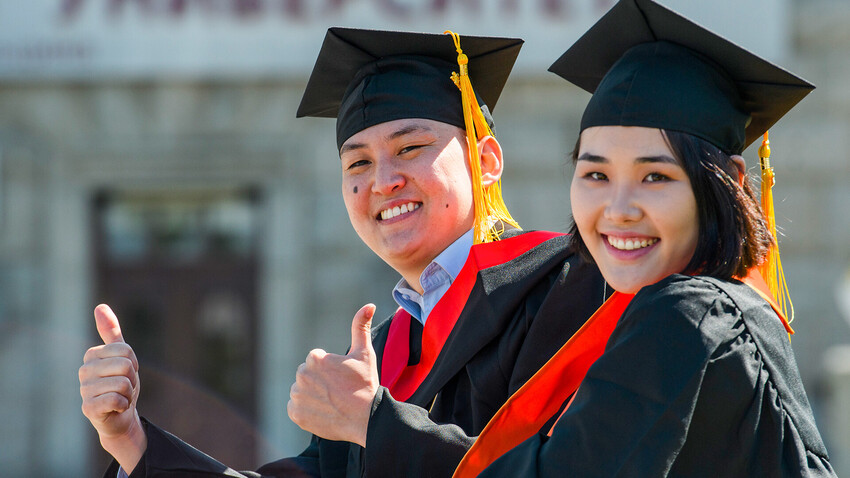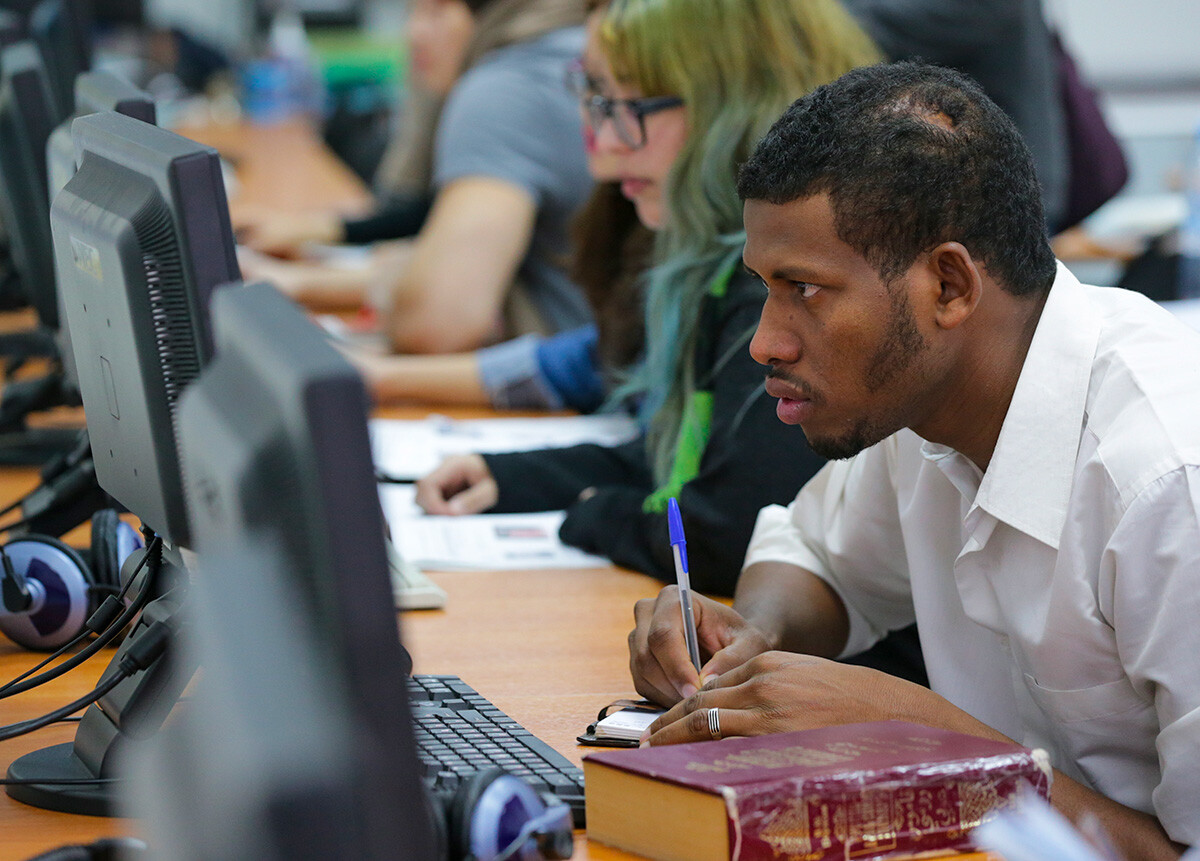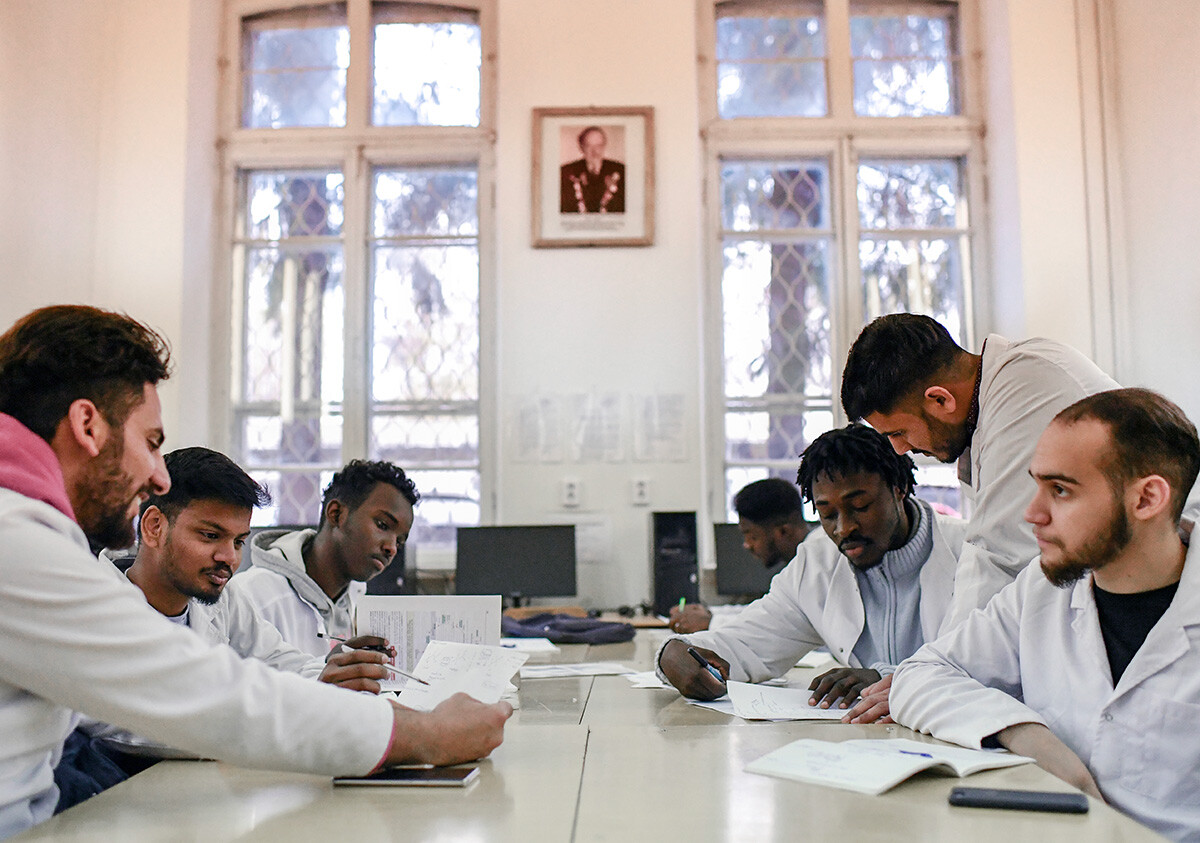
Russia has quotas for foreign students from different countries. It means that you can study for free in Russia, in the university and city of your choosing. These quotas are different for each country, but, overall, up to 30,000 foreign students can try their luck in entering Russian universities every year!
You can send an application directly to the chosen university via this official page. There, you will find a complete list of universities you can enroll in – 741 educational institutions overall. The search engine of the website has filters and allows you to find universities with a certain program or in a certain city and even has a rankings filter.
After creating an account, you will have to choose six universities and rank them according to your priorities (the university you want to enter the most is supposed to be first on the list, while your least desired plan B should be at the end). You also have to submit a scan of your passport (or ID), a copy of your academic certificate (in case you don’t have one yet, your grades), a filled-out application form and a passport photo. All the documents are supposed to be translated into Russian and verified by a notary or consulate. Some universities require additional documents – it’s always better to check the list of required documents of a particular university. Also, a few universities have a special application process that requires contacting state organizations – for example, to enter MGIMO (Moscow State Institute of International Relations), applicants have to contact their Ministry of Foreign Affairs. But it’s a rare situation.

Russian language classes at the Peoples' Friendship University of Russia, an international classic university in Moscow.
Artyom Geodakyan/TASSThen comes the second stage – screenings. They can be different for all universities, but all the information about additional tests is posted in your personal account on the website. Not all universities conduct the tests remotely – you may have to fly to Russia, but it’s way more probable that you will either take the test or complete an interview online or in the Russian Embassy or Russian House (organizations of Rossotrudnichestvo – a Russian government agency that is responsible for civilian foreign aid and cultural exchange). Then, you will receive the results in your personal account – whether you’re admitted or not. Success doesn’t necessarily mean that you will start studying the same year, though.
If you don’t speak Russian, you will have to complete a preparatory course – mainly you will learn the Russian language, alongside basics of disciplines related to your future field of study. Additionally, you may study Russian culture and history. In case you speak Russian, you may start your studies the year you applied.
Some universities don’t have preparatory courses for foreign students. In such a case, you will be assigned a university that does during the preparatory course, but, after completing it, you will get to study at the university you initially chose. Incidentally, if you fail your exam in Russian language after the preparatory course, you will lose your scholarship. You may still study in Russia, but with a tuition-fee.
The standard deadline for applying is the end of February. But, check the dates for your year of application – they may change from one year to the next and from one country to another.
To travel to Russia you’ll have to get a visa. The first visa will probably only be one month long, but, consequently, you can then apply for a yearly visa. The transfer is on you – universities only cover your education.
Even though the process is not very complicated, you can make it even easier for yourself – instead of searching for info and collecting all the documents yourself, address the Russian Embassy or Russian House in your country. They will help you with the process and provide important information.
Besides your scholarship, you will get monthly payments, just as all tuition-free students in Russia do. These payments are beyond small – the exact amount depends on the university, but usually it hovers around $20. Even if you don’t study well, you will receive this money. Also, you won’t have to do anything to get it; you simply need to get a MIR card. It is usually organized by your dean’s office and given out by bank associates right at the university, where you simply have to sign some documents.
There are also ways to increase these payments – you can participate in extracurricular activities, scientific research, sports, etc. Besides, you can even work – in 2020, the State Duma adopted a law that allows foreign students to work without a work permit. You only need to prove that you are a student (usually, the dean’s office has a special type of document for that).
Also, as a foreign student, you have a priority in getting a place in a dormitory. It is not free, but they are usually very cheap – your monthly payments will easily cover it.
In case you want to rent an apartment – it’s also possible, but both options will require you to get a temporary registration. In a dormitory, it will be organized by your place of study and if you’re renting accommodation, you should address your landlord.

Students during classes at the Medical Academy named after S. I. Georgievsky, Simferopol.
Alexei Malgavko/SputnikDear readers,
Our website and social media accounts are under threat of being restricted or banned, due to the current circumstances. So, to keep up with our latest content, simply do the following:
If using any of Russia Beyond's content, partly or in full, always provide an active hyperlink to the original material.
Subscribe
to our newsletter!
Get the week's best stories straight to your inbox